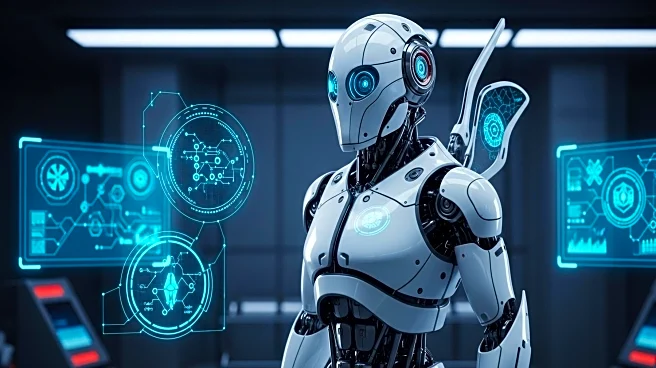What's Happening?
OpenAI has recently updated its generative AI video tool, Sora 2, following concerns over copyright infringement. The tool, which allows users to create videos using popular characters from franchises like Pokémon and Dragon Ball, initially operated on an 'opt-out' basis for intellectual property (IP) holders. This meant that companies had to actively request their IP not be used. However, after backlash and potential legal issues, OpenAI has shifted to an 'opt-in' model, requiring companies to give explicit permission for their IP to be used. Additionally, OpenAI plans to implement a payment system to share revenue with IP holders. This change comes amid a broader industry debate on the use of AI in content creation, with major companies like Disney and Warner Bros. already engaged in legal battles over similar issues.
Why It's Important?
The update to Sora 2 is significant as it highlights the ongoing tension between AI innovation and intellectual property rights. By requiring companies to opt-in, OpenAI is attempting to mitigate legal risks and foster a more collaborative relationship with content creators. This move could set a precedent for how AI tools handle copyrighted material, influencing future developments in the tech industry. The decision also reflects the growing influence of AI in creative fields, where traditional boundaries of content creation are being challenged. Companies that embrace these tools may benefit from new forms of engagement and revenue, while those that resist may face challenges in protecting their IP.
What's Next?
As OpenAI implements these changes, it will be crucial to monitor how companies respond. Some may choose to participate, seeing potential in AI-generated content, while others may continue to pursue legal action to protect their IP. The effectiveness of the new payment system will also be a key factor in determining the success of this approach. Additionally, other AI developers may follow OpenAI's lead, adopting similar models to avoid legal complications. The broader impact on the gaming and entertainment industries will depend on how these tools are integrated into existing business models and whether they can coexist with traditional content creation methods.









